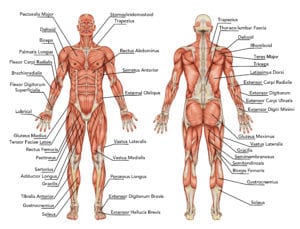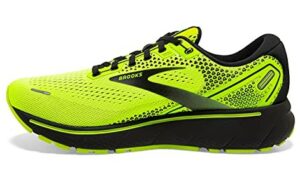If you know anything about working out, you know that if you are not walking, you are either jogging or running. There has been a long-running debate for years about what makes one different from the other. Is running really better than jogging and vice versa? Professional runners are known to even feel offended if someone says that they’re jogging. People often say that jogging doesn’t do as much for the body as running does. So, what is the difference between running and jogging? Below we look at a few points that are made by experienced runners, or are scientifically proven, that tell us the real difference between jogging and running and if there are any similarities.
Jogging vs Running
Differences in Form
If you are new to working out and want to do more than walking, you may wonder what’s the difference between running and jogging. For starters, people who don’t run tend to consider themselves joggers. The main thing that joggers do is move just enough, to the point that they are not considered to be walking. They don’t raise their legs as high because jogging requires less power from your body than running. Joggers are known to move with more of a bounce than runners because they don’t have to use the ball of their feet when landing.
Runners have a more distinctive form as it requires more power from the body. For starters, your knees have to be more aligned with your toes. Professional runners are trained to land their feet on their heels, but doctors have shown that it may lead to higher chances of a foot injury. It causes less injury to land on the midfoot and it also helps to enhance speed. Also, runners have to make sure to breathe out of their lungs correctly and deliver more power to enhance their speed, their arms should not cross their lungs while running and should remain on the side at a 90-degree angle. The head, shoulders, and back should also be straight to preserve momentum and speed.
Speed and Intensity
The most obvious differences that one can see between jogging and running is in the speed and intensity. One can see just by looking that jogging is a less intense workout, but how much less? Experts say that the defining speed that differentiates a jogger from a runner is about 6 miles per hour, or a pace of 1 mile in 10 minutes. Joggers run at a more moderate pace, easy enough for them to be able to breathe properly and hold a conversation while jogging. They could even jog for hours if the pace is calm enough. With light movement, jogging is easier on your knees because joggers don’t have to raise their legs and knees as high and their strides are shorter.
Running, then, would have to be far more intense and require faster speeds. First, running requires you to have a steady rhythm because, to reach the time or mileage you want, you need to focus on your breathing. Any speed over 8 miles per hour, or a mile ran faster than 10 minutes, is considered running. Running requires more power from your muscles, lungs, and heart to keep the faster pace going. Running requires longer strides and faster arm movements. Your body muscles have to be strong to maintain a longer mileage and faster pace. Due to the faster breathing, a higher and longer push of the legs, and landing of the feet, your body experiences more exertion than a joggers does and that tired effect comes much quicker.
Mind vs Body
Anyone who has ever run for more than 5 minutes will know what it’s like to want to stop and take a break for a second and then start up again. Joggers and runners tend to have different mindsets when it comes to this form of cardio exercise. Joggers typically don’t run as often and look at it as more of a casual exercise that they can do outside or on the treadmill. Many times you will find joggers conversing with a partner to pass the time of the workout. Since less strain is being put on your body many people use jogging as a way to think or clear their mind.
Runners, on the other hand, are more focused as they have to maintain endurance for speed. Runners use more mental energy focusing on increasing speed and mileage in a shorter time. To increase mileage they have to focus on breathing techniques, making sure they’re posture is correct, and not stopping until they’ve reached the goal distance. To practice this kind of mental power, runners have to train themselves mentally to make sure that they run every day. If you want either running or jogging to be effective for your body, you have to mentally prepare yourself to keep going when you want to stop, especially if you are a beginner.
Mental Health Benefits of Both
Psychologists believe that due to its relaxed pace and less strain on the muscles, jogging is great for dealing with stress and anxiety. Jogging puts you in a calmer state of mind that decreases your anxiety. Going outside to jog or run helps your mind receive the Vitamin D that it needs to lower any depressive symptoms you may have, or keep them from coming. Both jogging and running help to maintain a healthy level of stress management. Scientists say these exercises help to concentrate a chemical that helps moderate our response to stress called norepinephrine. These exercises also help to release chemicals in our brain called endorphins which make us feel “happy.” In fact, after runners finish their strenuous workout they feel what is called a “runners high”, a euphoria which makes you feel less pain in your body and reduces anxiety.
Running and jogging not only decreases the chemicals that cause stress, depression, and anxiety but it also helps to get your brain motivated to do the tasks you have for the day. Brain researchers have found that those who even take a short jog in the morning are more productive at work than their peers who don’t work out. These two exercises also help to boost creativity when you feel a mental block. While running and jogging can help you get motivated and boost your brainpower, since it decreases anxiety, it can also calm your mind enough to help with insomnia. Scientists say if you run about six hours before you go to bed, the body raises its core temperature and by the time it fully drops back down your body will be ready to go to sleep.
Physical Health Benefits of Both
Whether you consider yourself a jogger or runner, both provide amazing health benefits to your body, helping it immediately and preparing it for great health in the long term. Remember, to increase your mileage you have to train your body to run for a long period of time. Running and jogging forces your body to increase its endurance and stamina, making your body stronger. While you are running or jogging your body is burning fat to produce energy. Research has linked this to decreased risks of hypertension, high cholesterol, and diabetes. Both exercises help you improve your metabolism, lose or maintain weight, tone your core, burn calories, and increase cardiovascular health.
If you are a runner and you run at about 10 miles per hour, you burn about 170 calories in 10 minutes. If you jog at 5 miles per hour, you burn about 90 calories in 10 minutes. Although both will help you burn calories, the misconception is that running will help you burn calories and lose weight faster. However, while running you burn energy faster. For example, if you were to jog for 30 minutes at 5 miles per hour, you would burn up to 270 calories. It’s hard for runners to keep up a 10 mile per hour speed for that long, so researchers believe that jogging is actually more beneficial when it comes to losing weight and burning fat than running.
The Overall Verdict
Whether you want to be called a runner or a jogger, both require you to have enough stamina and mental ability to go enough distance to feel results. There is only one real difference between the two and that is the speed and distance that is run in 10 minutes. Jogging has more of a relaxed and leisurely feel because there is less intensity required from the body. They both provide major positive results for your mental health and help prevent your body from dealing with long term chronic illnesses and heart disease. No matter whether you consider yourself a jogger or a runner, what matters the most is that you are motivated to continue to do it each day for better health.


























